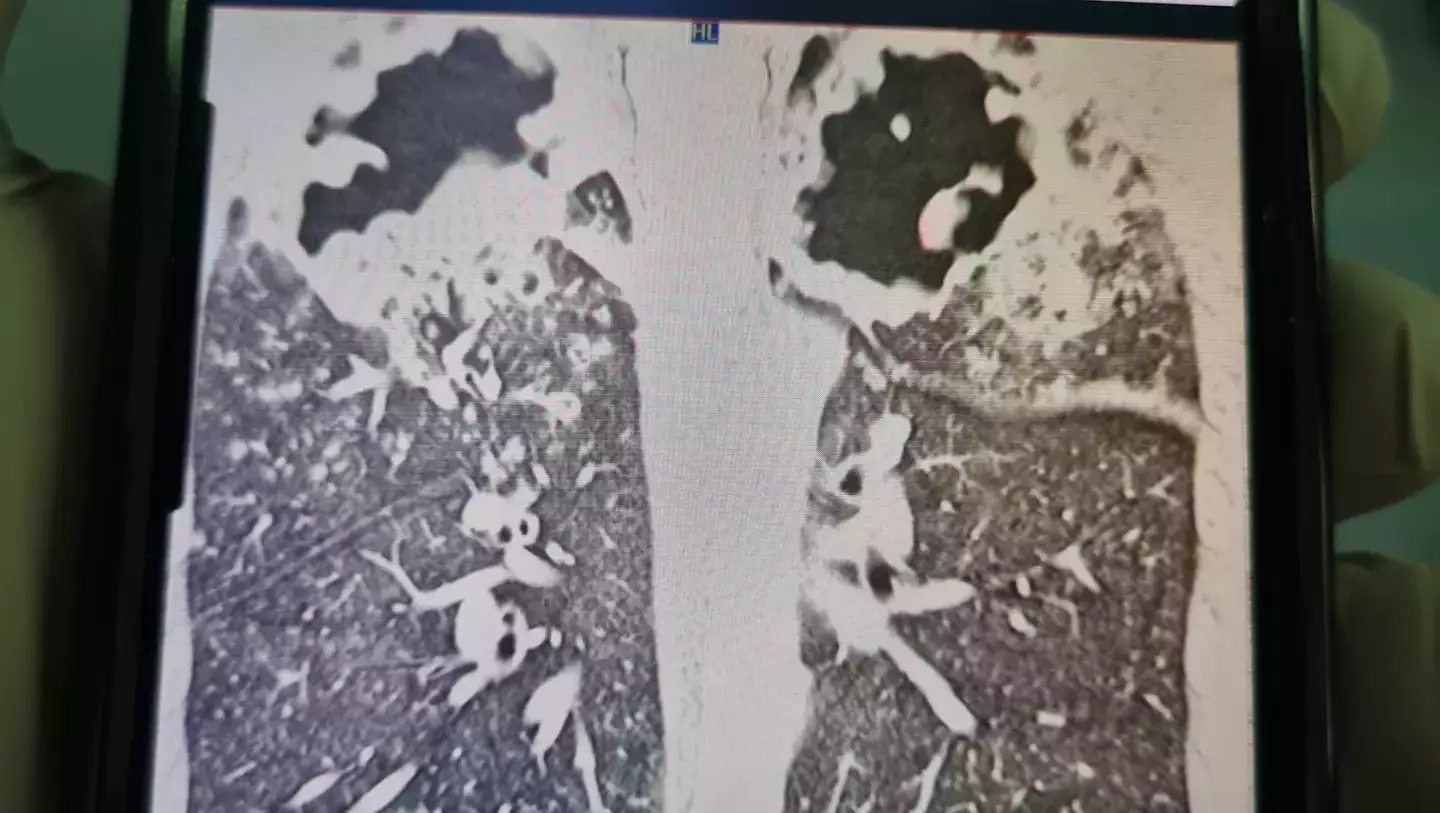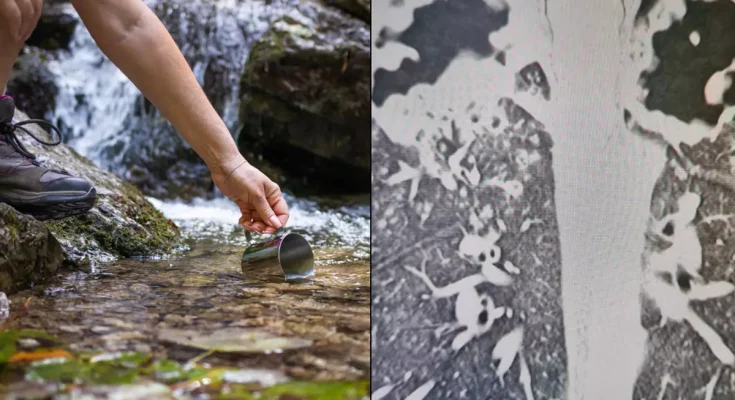Boffins have urged others to be wary after Chris Capper’s sip of spring water has left him dealing with life-changing consequences
Although water from a spring running by you might bring on a raging thirst, don’t ever get tempted to have a mouthful of it.
Experts have urged people to grab a glass and turn to the tap instead of supping some H20 from an outdoor water source after an Australian man was left ‘slowly dying’ when he drank some unfiltered spring water.
Chris Capper made the near-fatal mistake when he had a sip of the stuff while visiting a friend in Mount Elliot, northern Queensland, back in 2021.
The 33-year-old ended up contracting a rare lung infection called nontuberculous mycobacteria disease (NTM) and became seriously unwell due to consuming the liquid which had not been treated to remove all the rubbish from it.
And after just six weeks, the disease – which is brought on by bacteria found in soil, water and dust – had ‘eaten’ up a third of his lung, caused his kidneys to fail and brought on arthritis in some of his joints.
Unfortunately for Chris, quenching his thirst with unfiltered spring water has now left him reliant on 16 tablets a day.
He tragically told how it ‘feels like [doctors] are waiting for him to die’ because they know so little about his condition, while he also said that medics have compared it to ‘modern day tuberculosis’.

(GoFundMe)
Which is exactly why you shouldn’t touch unfiltered spring water with a ten foot pole, according to this expert.
Although you might reckon that ‘raw’ water – AKA, water in it’s most natural state – would do you the world of good, you’d actually be dead wrong – as registered dietitian Gillian Culbertson says drinking some is a ‘big risk’.
Discussing the sudden interest in drinking water which hasn’t been cleared of contaminants or pumped through pipework, the US-based boffin explained there are much ‘safer’ alternatives than getting your supply from a spring.
You’re essentially putting yourself at risk of a ton of water-borne diseases and inviting dodgy bacteria inside of your body, which can have life-altering results like it did to Chris.
Speaking to Cleveland Clinic, Gillian explained: “Spring water and other sources of untreated water flow through rock material and come into contact with organic material that is a breeding ground for bacteria.
“Without proper filtration and decontamination, it can make you very ill.
“When you choose to drink water that hasn’t been properly tested and filtered, you’re taking a big risk. If you’re looking for an alternative to drinking water straight from your faucet, there are safer ways to do it.”

(Getty Stock Photo)
The expert reassured people that bottled spring water you can pick up in the supermarket has been ‘thoroughly tested’ and is ‘safe to drink’, but the same can’t be said if you cut out the middle man and go straight to the spring yourself.
And although there may also be risks to drinking treated water, Gillian emphasised that these are a lot slimmer.
“We know that things do happen and can happen that can affect the quality of municipal water,” the dietitian said.
“But it’s rare. And I’d venture to say that drinking raw water is much more likely to pose an imminent threat than the possibility that your locally treated water is contaminated.”
Gillian has a few recommendations if you fancy triple checking your tap water is safe, though.
Using a water filter to catch any stray contaminants which might remain after treatment is one, while actually testing your water to give you peace of mind can also come in handy.
And of course, there’s the usual stuff – such as boiling any untreated water before you drink it to kill any of the nastiness and avoiding it if it has a funny smell, colour or taste.
But as a general rule of thumb, swerve untreated spring water if you don’t want to roll the dice with your health.



